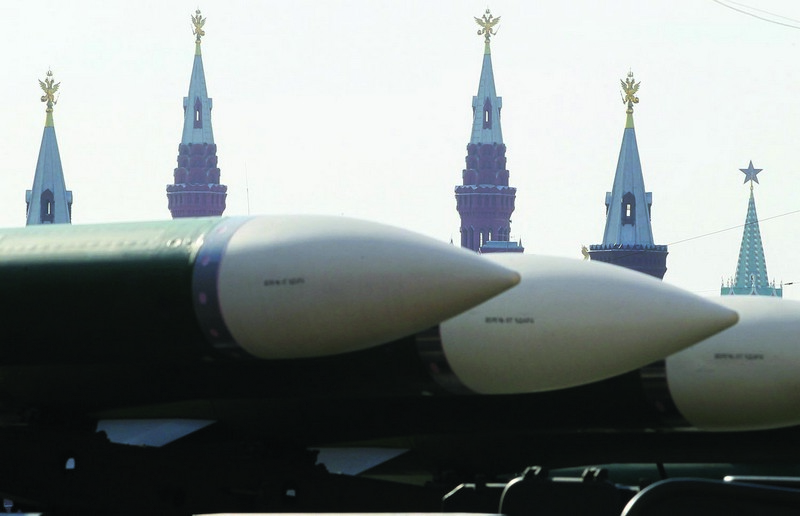FT: Russia trained for use of nuclear weapons against Europe as early as 2008
FT refers to leaked documents. Russia has been using nuclear threats widely to restrain the West from helping Ukraine reclaim occupied lands.


According to FT, referring to leaked documents, the Russian military’s strategy emphasizes the early use of nuclear weapons as part of a total war.
The Financial Times reports it obtained secret Russian military documents revealing that Russia’s navy has been preparing for potential nuclear strikes against targets across Europe since at least 2008. The leaked files, dating from 2008 to 2014, outline a strategy for “sudden and pre-emptive blows” and “massive missile strikes” using nuclear-capable missiles in the event of a conflict with NATO.
The documents detail targets spread across Europe, including military bases and critical infrastructure in Norway, Germany, and the United Kingdom. Among the notable targets are the naval base in Bergen, Norway, and a submarine shipyard in Barrow-in-Furness, northwest England.
According to the FT’s analysis, the Russian military’s strategy emphasizes the early use of nuclear weapons in combination with conventional strikes. Western analysts who reviewed the documents noted that the plans align with NATO’s assessment of Russian naval strike capabilities and nuclear doctrine.
Euromaidan Press can’t confirm the authenticity of the documents. Russia has been using nuclear threats widely to restrain the West from helping Ukraine reclaim lands occupied by Russia after 2014.
Related:
- The Kursk incursion logic
- UK didn’t allow Storm Shadow use in Ukraine’s Kursk offensive
- Kursk Oblast incursion aims to protect Ukrainian lives from Russia’s cross-border attacks, Ukraine’s Foreign Ministry says
- US Senators Blumenthal and Graham endorse retired NATO F-16 pilots for Ukraine’s Air Force
You could close this page. Or you could join our community and help us produce more materials like this.
We keep our reporting open and accessible to everyone because we believe in the power of free information. This is why our small, cost-effective team depends on the support of readers like you to bring deliver timely news, quality analysis, and on-the-ground reports about Russia's war against Ukraine and Ukraine's struggle to build a democratic society.
A little bit goes a long way: for as little as the cost of one cup of coffee a month, you can help build bridges between Ukraine and the rest of the world, plus become a co-creator and vote for topics we should cover next. Become a patron or see other ways to support.



